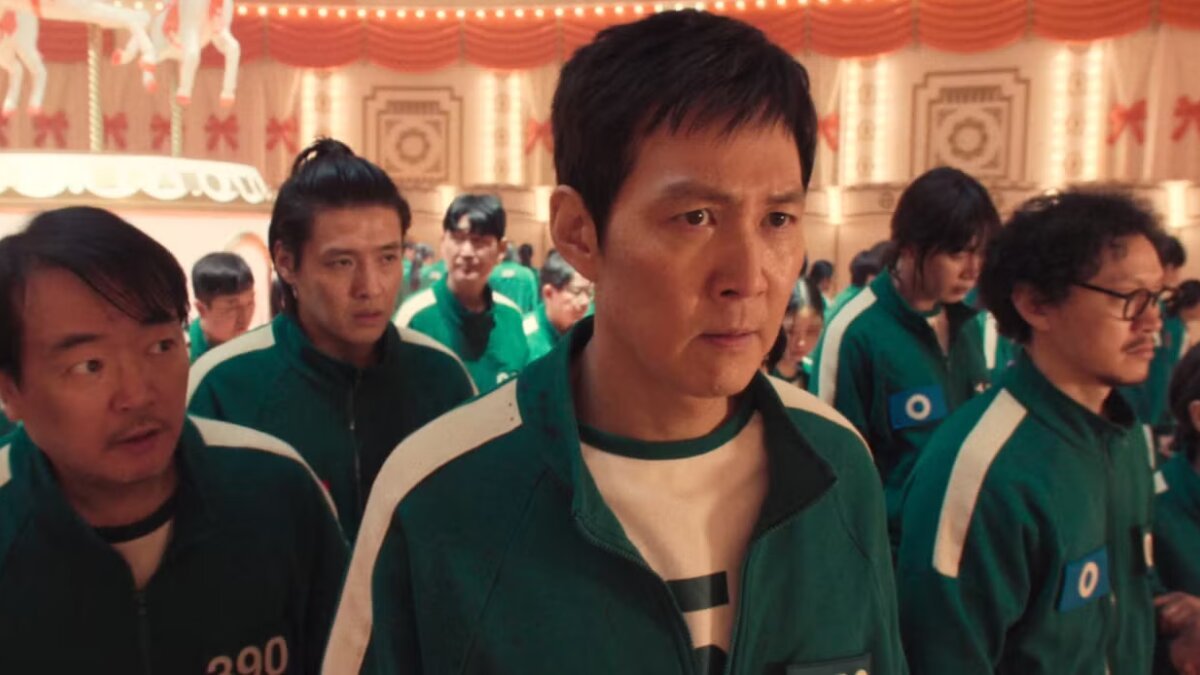When Squid Game launched, it wasn’t just a social horror—it was a mirror held up to the world’s darkest systems. At its center stood Seong Gi-hun, a flawed everyman who stumbled his way into survival. By Season 3, though, that man is gone. What remains is a hardened figure who returns not to play, but to fight.
His chosen enemy? The VIPs—the grotesque, masked elite who treat death as a sport and poverty as a spectacle.
But Gi-hun’s mission to bring them down raises a polarizing question: Is he acting out of a higher sense of justice, or is his rebellion rooted in personal pride and ego? Is he trying to destroy the system—or just prove that he can?
What unfolds is not just a revolution, but a character study wrapped in moral ambiguity.
Gi-hun the Martyr: The Moral Crusader Narrative
From one lens, Gi-hun’s war against the VIPs is noble. He’s the survivor who couldn’t ignore the screams of the dead. He saw the system for what it was: a machine that thrives on exploitation, and he refuses to be complicit.
In this reading, Gi-hun’s return is a moral imperative. He’s the only player who truly understands the game, and he chooses not to run with his wealth, but to stand against the same power that once broke him.
He represents the guilt of survival turned into action. He’s what happens when trauma evolves into purpose.
The Other Side: Gi-hun the Egoist
But that isn’t the whole story.
There’s a growing case that Gi-hun’s mission is more about ego than ethics. After all, what can one man realistically achieve against a centuries-old institution funded by the world’s wealthiest?
His methods—re-entering the game, endangering others, and engaging in direct confrontation—don’t scream strategy. They scream obsession.
Was he trying to expose the system—or prove to himself that he had power in a world that once stripped him of it? His war feels personal. And personal wars are rarely clean.
The VIPs: Caricatures of Privilege or Purposeful Satire?
The VIPs themselves aren’t just antagonists—they’re representations of unchecked privilege. Drenched in gold, speaking in hollow phrases, they are the embodiment of wealth divorced from humanity.
In Season 3, they’re given more depth—yet still maintain that sickening air of apathy. To them, Gi-hun isn’t a threat; he’s entertainment. Even his rebellion is seen as “part of the game.”
This infuriates Gi-hun—and perhaps, pushes him further from justice into vengeance. The more they belittle him, the more personal the mission becomes.
Does that make him any different from them? Or just a pawn in a higher-level match?
The Shift from Survivor to Challenger
Season 1 Gi-hun was reactive—surviving on instinct, emotion, and sheer luck. Season 3 Gi-hun is proactive. He’s on the offensive. But with that shift comes a dangerous line: is he still grounded in morality, or has he assumed the same “god complex” as the people he wants to destroy?
Like many revolutions in fiction, Gi-hun’s mission teeters between heroism and tyranny. He begins manipulating outcomes, influencing players, and justifying sacrifice for “the greater good.”
At what point does the freedom fighter become another masked tyrant?
Audience Perspective: The Moral Dilemma We’re Meant to Feel
What makes Squid Game such a cultural force isn’t just its gore or games—it’s the moral discomfort it forces on the audience.
With Gi-hun’s arc, viewers are no longer watching a victim—they’re watching a man wielding power. And power corrupts. Even the most righteous intentions can become twisted when filtered through trauma, pride, and grief.
So when Gi-hun stares down the VIPs, are we cheering for justice—or for revenge? Are we watching a hero—or someone who just wants to win a different kind of game?
Conclusion
Gi-hun’s battle against the VIPs isn’t a simple case of good vs. evil. It’s a murky war between memory and morality, between grief and pride.
On paper, he’s trying to destroy a corrupt system. But emotionally, he’s trying to reclaim agency, control, and maybe even meaning. His fight feels just—but the path he takes blurs the line between savior and egoist.
And maybe that’s exactly the point. In Squid Game, no one gets out clean—not even the ones who want to fix it.


